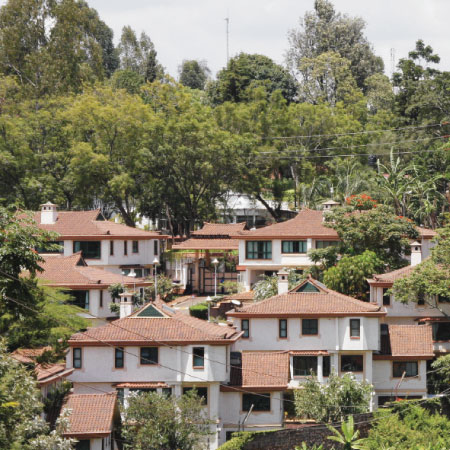×
The Standard e-Paper
Join Thousands Daily
 |
One of your aspirations in the New Year could be to have your own home. But getting onto the homeownership ladder is usually a daunting task that comes with a lot of sacrifices. PETER MUIRURI brings you an inspiring story of how one couple realised their long-cherished dream of owning a home
As excitement about the New Year reached fever-pitch last week, one lady could not hide her joy. She was not only happy to have seen 2014; she had great dreams for her life as well.